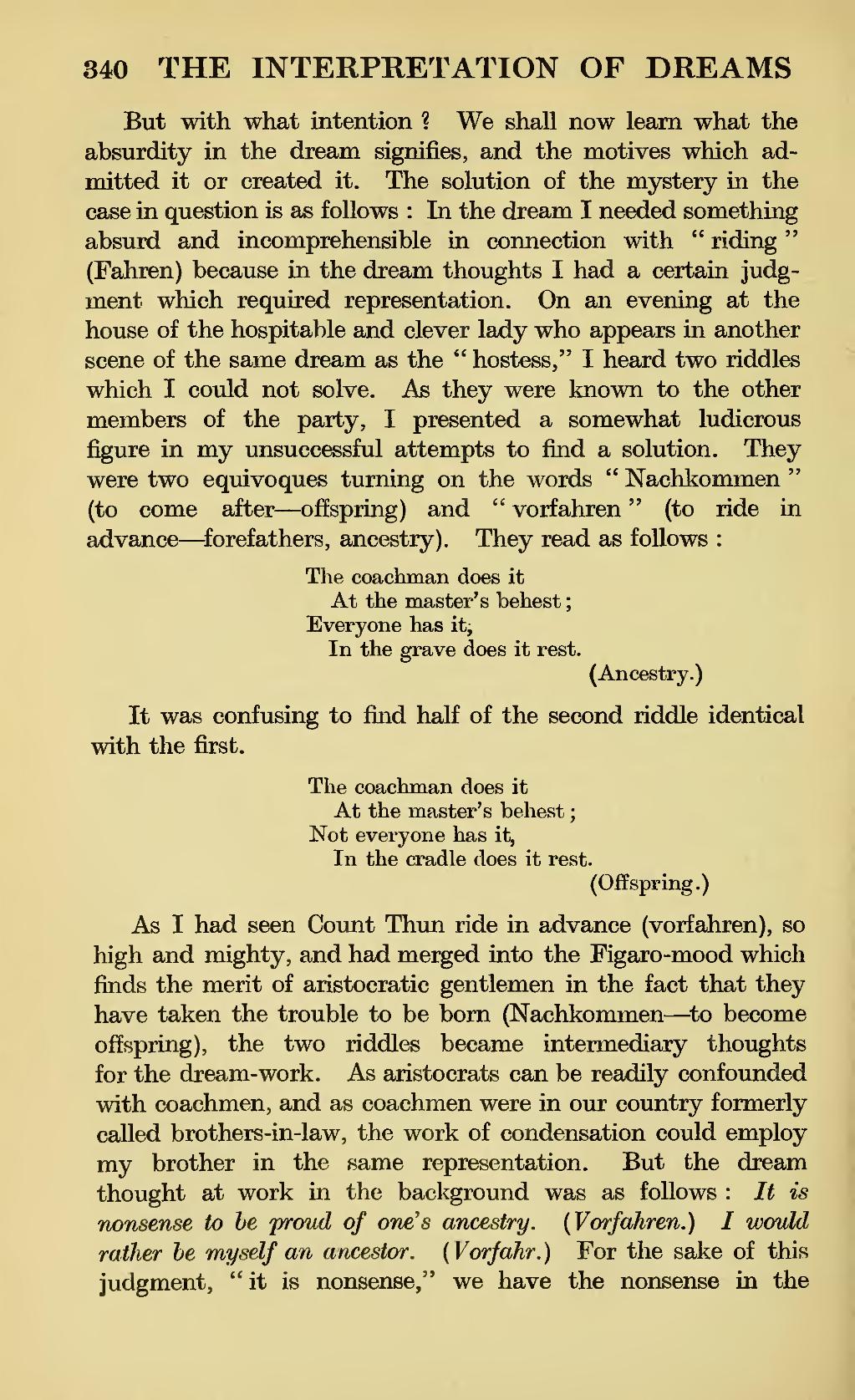But with what intention? We shall now learn what the absurdity in the dream signifies, and the motives which admitted it or created it. The solution of the mystery in the case in question is as follows: In the dream I needed something absurd and incomprehensible in connection with "riding" (Fahren) because in the dream thoughts I had a certain judgment which required representation. On an evening at the house of the hospitable and clever lady who appears in another scene of the same dream as the "hostess," I heard two riddles which I could not solve. As they were known to the other members of the party, I presented a somewhat ludicrous figure in my unsuccessful attempts to find a solution. They were two equivoques turning on the words "Nachkommen" (to come after—offspring) and "vorfahren" (to ride in advance—forefathers, ancestry). They read as follows:
At the master's behest;
Everyone has it,
In the grave does it rest.
(Ancestry.)
It was confusing to find half of the second riddle identical with the first.
At the master's behest;
Not everyone has it,
In the cradle does it rest.
(Offspring.)
As I had seen Count Thun ride in advance (vorfahren), so high and mighty, and had merged into the Figaro-mood which finds the merit of aristocratic gentlemen in the fact that they have taken the trouble to be born (Nachkommen—to become offspring), the two riddles became intermediary thoughts for the dream-work. As aristocrats can be readily confounded with coachmen, and as coachmen were in our country formerly called brothers-in-law, the work of condensation could employ my brother in the same representation. But the dream thought at work in the background was as follows: It is nonsense to be proud of one's ancestry. (Vorfahren.) I would rather be myself an ancestor. (Vorfahr.) For the sake of this judgment, "it is nonsense," we have the nonsense in the
